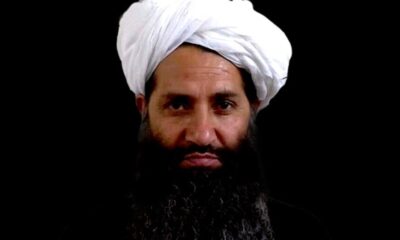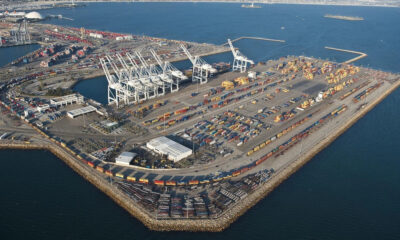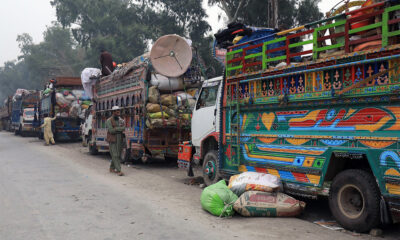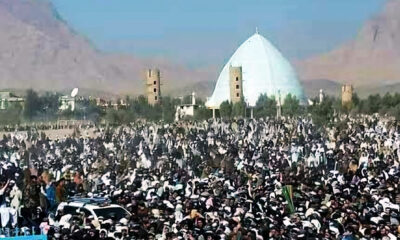Latest News
One fifth of starving Afghan families sending children out to work
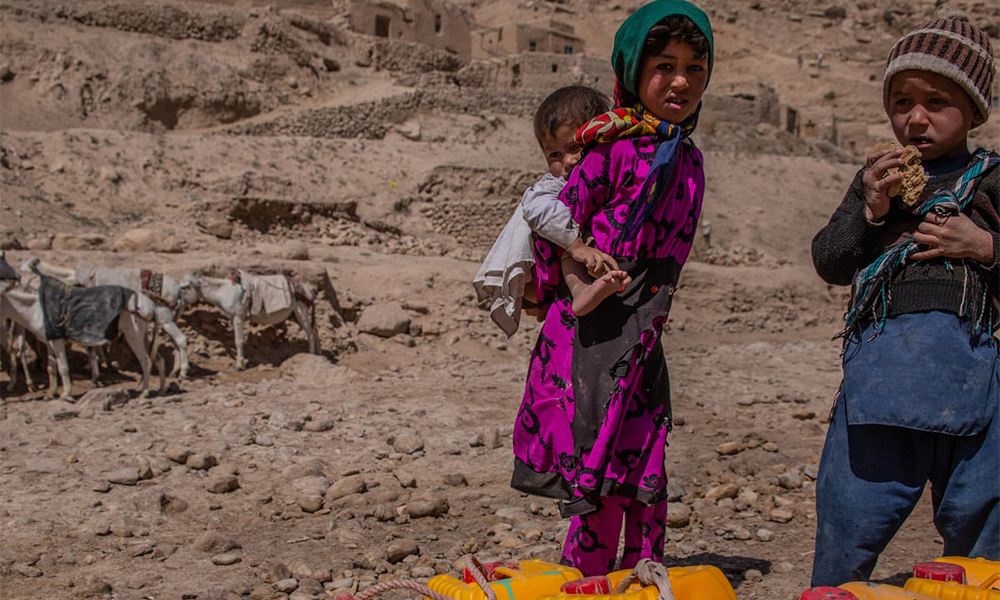
Up to one-fifth of families in Afghanistan have been forced to send their children out to work as incomes have plummeted in the past six months with an estimated one million children now engaged in child labour, according to new Save the Children research.
A survey of 1,400 households across seven provinces of Afghanistan found that 82% of Afghans have lost income since the collapse of the former government and transition of power last August, with 18% reporting they had no choice but to send their children out to work.
According to Save the Children’s analysis, if just one child in each of these families is being sent to work, then more than one million children in the country are engaged in child labour.
More than 80% of those surveyed reported a loss of income, with a third (34.8%) having lost all of their household income, and a quarter (26.6%) having lost more than half. Families living in cities were hit hardest, with half of families in Kabul saying they had lost their entire income.
The huge spike in prices caused by the economic crisis has left many families unable to afford food. About 36% of families reported that they are purchasing food in the market on credit, whereas 24% said they did previously. Thirty-nine percent are borrowing food from better-off families, compared to just 25% previously.
As families sink further into debt and poverty, 7.5% said they were begging or relying on charity to feed their families.
Last month, Save the Children reported that the number of dangerously malnourished children visiting its health clinics had more than doubled since August.
Save the Children’s Country Director in Afghanistan, Chris Nyamandi, said:
“I’ve never seen anything like the desperate situation we have here in Afghanistan. We treat frighteningly ill children every day who haven’t eaten anything except bread for months. Parents are having to make impossible decisions – which of their children do they feed? Do they send their children to work or let them starve? These are excruciating choices that no parent should have to make.
“There is no shortage of food here – the markets are full. Yet children are starving to death because their parents can’t afford to pay for food. This could, and should, have been prevented. But it is not too late to prevent further tragedy if we act now.
“We’re doing everything we can to get families the help they need. But the truth is that humanitarian aid can only go so far. This is an economic crisis, and it needs an economic solution. Governments must find a way to unlock vital funds and unfreeze financial assets to prevent the crisis from spiralling any further.”
Save the children is providing families with urgent cash assistance and winter kits with essential items to get them through the winter. Cash assistance helps to prevent families from resorting to desperate measures that adversely affect children such as child labour, early marriage and reduced meals.
Since September 2021, Save the Children has reached 763,000 people, including 430,800 children, and provided more than 127,000 people with multi purposes cash transfers and cash for food.
Latest News
Islamic Emirate faces a wave of negative propaganda: Supreme leader
In his speech, Akhundzada emphasized on avoiding division and disunity, stating that the survival of the system lies in unity and solidarity.
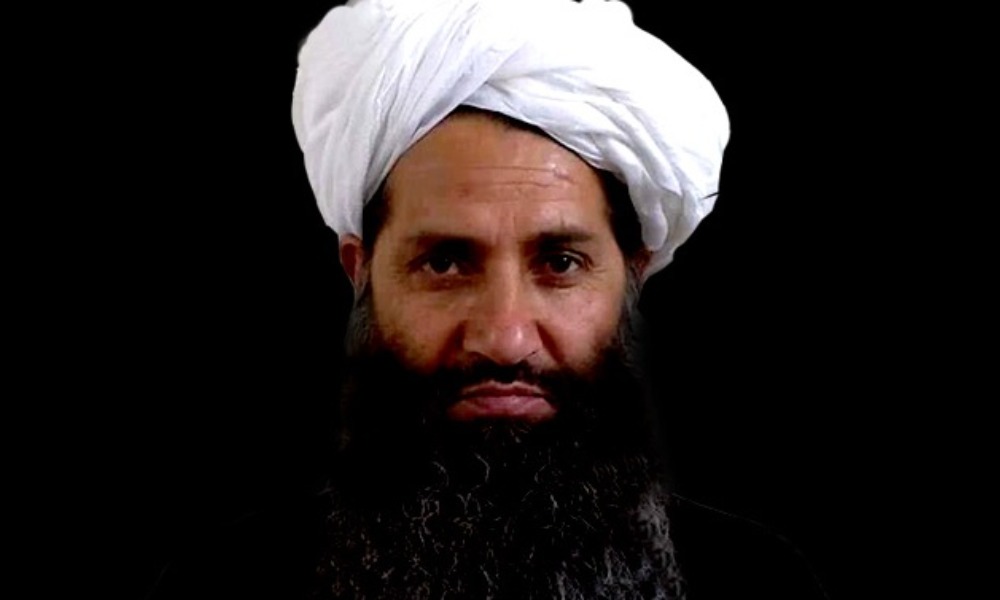
Mawlawi Hibatullah Akhundzada, supreme leader of the Islamic Emirate of Afghanistan (IEA), led Eid-ul-Fitr prayer in Kandahar province on Sunday, attended by thousands of people.
In his speech, Akhundzada emphasized on avoiding division and disunity, stating that the survival of the system lies in unity and solidarity.
He added that the Islamic Emirate is facing a wave of negative propaganda, and its enemies are using these tactics to incite war and conflict in the country once again.
He warned that division would lead to the failure of Muslims and the collapse of systems.
The leader of the Islamic Emirate further mentioned that they sacrificed their lives for 20 years to achieve victory in jihad, and protecting this system requires even more sacrifices.
He called on the people, the forces of the Islamic Emirate, and officials to obey the leadership’s orders, emphasizing that the absence of leadership in the past led to civil wars, which must not be repeated.
Latest News
Pakistan finalizes plans to detain and deport Afghans as deadline nears
Pakistan has granted Afghan migrants, both undocumented and those holding ACC cards, a deadline of March 31 to voluntarily leave the country.
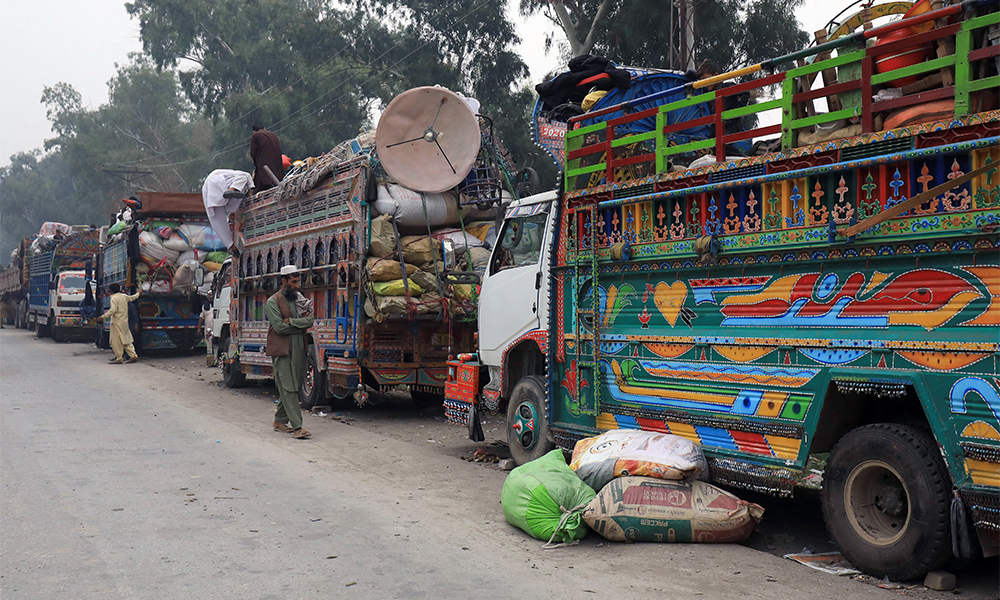
Officials in Pakistan have completed arrangements to detain and expel Afghan citizens following the March 31 deadline for their voluntary return to Afghanistan. This move is part of the country’s plan to address the growing concerns regarding the status of Afghan migrants in Pakistan.
A high-level meeting on Friday, chaired by Interior Minister Mohsin Naqvi, reviewed the measures to repatriate Afghan Citizen Card (ACC) holders. This meeting focused on ensuring the effective execution of the government’s deadline and the logistics surrounding the return process.
Despite requests from the Afghan government and human rights organizations, Pakistani authorities have firmly rejected extending the deadline for the return of ACC holders. The Pakistani government had initially set the deadline for the end of March, and the expulsion process will move forward as planned.
Mohsin Naqvi also revealed that Talal Chaudhry, the State Minister for Interior, would travel to the provinces to assess and address any challenges and potential issues in the process of Afghan migrants’ return.
Meanwhile, Pakistani security forces have detained at least 932 Afghan migrants in Rawalpindi, as the deadline for the expulsion of Afghan migrants with ACC cards approaches.
Human rights organizations have strongly condemned Pakistan’s recent decision to expel Afghan refugees, labeling it a violation of international law and a potential humanitarian crisis. They argue that many of these refugees, including human rights defenders, political activists, and victims of gender-based violence, fled Afghanistan to escape persecution and are now at risk of facing harm if deported.
The Human Rights Commission of Pakistan (HRCP) has expressed deep concern over the government’s ultimatum for undocumented immigrants to leave by March 31, warning that this could lead to a humanitarian disaster. They highlight that such forced repatriation violates international customary law and could adversely affect vulnerable groups, including women, children, the elderly, and individuals with disabilities.
Amnesty International has called on Pakistan to halt the detentions, deportations, and harassment of Afghan refugees, emphasizing that these actions violate the principle of non-refoulement, which prohibits returning individuals to places where they face risks of persecution. They stress that deporting Afghan refugees, especially women and girls, could deny them access to safety, education, and livelihoods.
Pakistan has granted Afghan migrants, both undocumented and those holding ACC cards, a deadline of March 31 to voluntarily leave the country.
However, Pakistani officials confirmed that Afghan migrants holding “PoR” cards are not at risk of being expelled until June 30.
Meanwhile, the International Organization for Migration (IOM) reported a sharp decline in Afghan returns and deportations during the first half of March. Between March 1 and 15, returns dropped by 67 per cent, while deportations fell by 50 per cent compared to the previous reporting period (February 16-28).
Latest News
Eid prayer led by IEA leader in Kandahar: Mujahid
Abdul Salam Hanafi, the Deputy Prime Minister for Administrative Affairs, called on opposition groups to return to Afghanistan and participate in the country’s reconstruction.
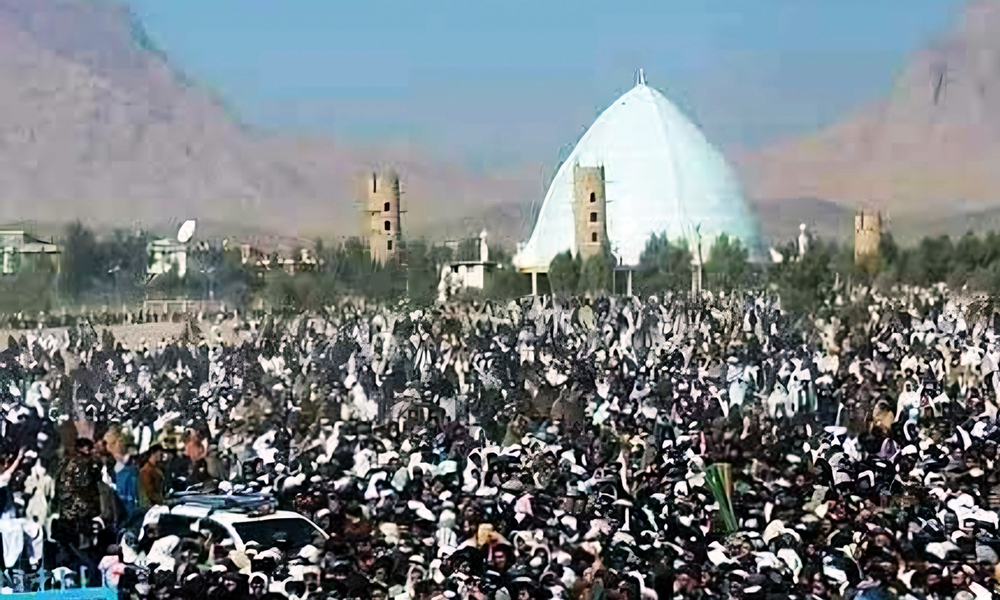
Zabihullah Mujahid, the spokesperson for the Islamic Emirate, announced on Sunday that the Eid al-Fitr prayer was held at the Eidgah Mosque in Kandahar, where Hibatullah Akhundzada, the Supreme Leader of the IEA, led the prayers.
Thousands of people attended the event, marking a significant religious occasion.
Other IEA senior officials gathered for the Eid prayer at the ARG (Presidential Palace) in Kabul.
Mullah Abdul Ghani Baradar, the Deputy Prime Minister for Economic Affairs, took the opportunity to address the public, stating that the Islamic Emirate is ready to engage with the world based on mutual respect. He also emphasized the importance of unity and solidarity among the Afghan people.
Baradar stressed that rebuilding the country requires internal unity and that no foreign entity can achieve this task for Afghanistan. On security, he highlighted the achievements of the past three years, asserting that under their administration, Afghanistan has become fully secure.
He reaffirmed that the IEA is committed to fostering international relations through an “economy-driven policy.”
Abdul Salam Hanafi, the Deputy Prime Minister for Administrative Affairs, called on opposition groups to return to Afghanistan and participate in the country’s reconstruction.
Hanafi reiterated the IEA’s desire for economy-driven relations with all regional and global powers based on mutual respect.
Mohammad Yousuf Wafa, the Governor of Balkh, also affirmed that the current system will not be undermined. He stated, “This system was established through great sacrifices, and it is our collective duty to defend it.”
The Eid prayers and the speeches of the IEA leadership underscored a message of unity, security, and a desire for positive international engagement.
-

 World5 days ago
World5 days agoSecretive Chinese network tries to lure fired US federal workers, research shows
-

 Latest News4 days ago
Latest News4 days agoAfghanistan has the right to access Amu River’s water: Uzbek minister
-

 Climate Change5 days ago
Climate Change5 days agoUN and ICRC warn of serious water shortage in Afghanistan
-

 Latest News4 days ago
Latest News4 days agoAmnesty international urges Pakistan to halt Afghan deportations
-

 International Sports5 days ago
International Sports5 days agoIPL 2025: Punjab Kings secure thrilling 11-run win over Gujurat Titans
-
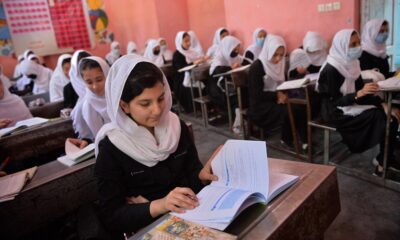
 Latest News4 days ago
Latest News4 days agoUN ‘deeply disappointed’ over ongoing ban on girls’ secondary education
-

 Latest News4 days ago
Latest News4 days agoAfghanistan-Iran-Europe railway corridor activated
-

 Business3 days ago
Business3 days agoAfghanistan ships first consignment to Europe via Khaf-Herat railway


